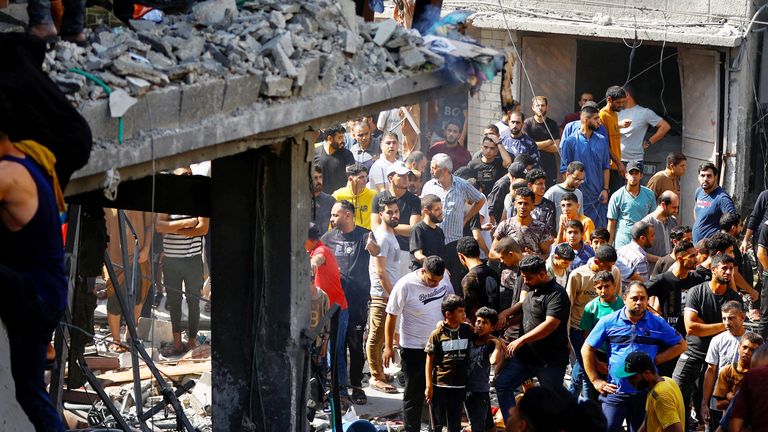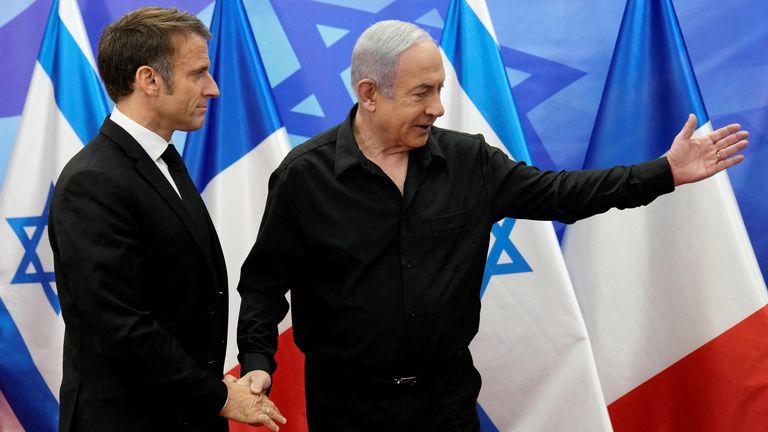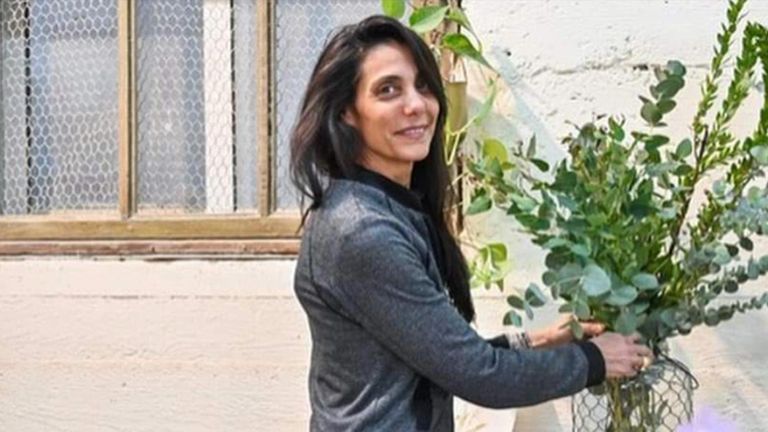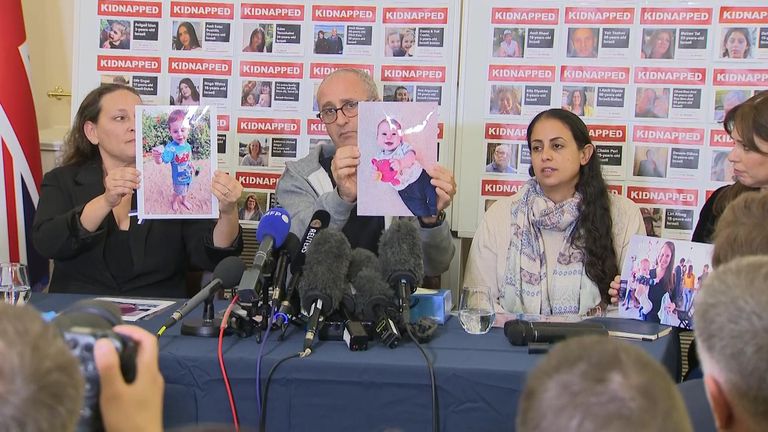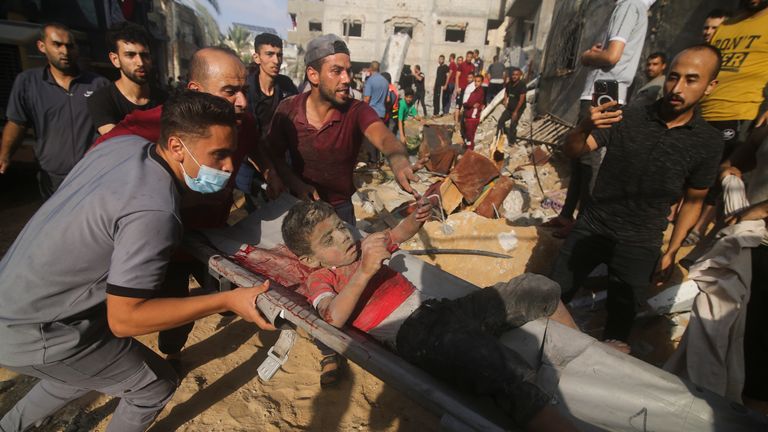
The Israeli military has been dropping leaflets in Gaza asking Palestinians to reveal information on hostages’ whereabouts.
In exchange, the military promised a reward and protection for any informant’s home.
Hamas seized more than 200 people and killed another 1,400 in cross-border raids into Israel on 7 October.
“If your will is to live in peace and to have a better future for your children, do the humanitarian deed immediately and share verified and valuable information about hostages being held in your area,” the military said in the leaflet.
“The Israeli military assures you that it will invest maximum effort in providing security for you and your home, and you will receive a financial reward. We guarantee you complete confidentiality.”
The leaflet listed phone numbers to call with information.
Israel-Hamas war – latest updates
People sheltering at Nasser hospital in Khan Younis in southern Gaza collected the leaflets and tore them up after they were dropped.
Referring to Israeli Prime Minister Benjamin Netanyahu, one Palestinian man said: “We don’t care, do whatever you want. All of us in Gaza are telling you, we are resisting, from east to west.”
Speaking alongside Mr Netanyahu, French president Emmanuel Macron on Tuesday proposed widening the Global Coalition Against Daesh (Islamic State) to fight Hamas.
He said: “France is ready for the international coalition against Daesh in which we are taking part in operations in Iraq and Syria to also fight against Hamas.”
The 86-country organisation currently does not include Israel, but Mr Macron said France and Israel now shared a “common enemy” in defeating “terrorism”.
Israeli forces are massed near the border with the Gaza Strip, awaiting orders for an expected ground invasion intended
to free the hostages and wipe out Hamas.
Israel says the hostages, who include foreign nationals, were taken to Gaza, but their exact whereabouts are not known,
complicating their rescue.
Officials have said many could be held in a warren of tunnels under Gaza.
Hamas has released four hostages, and promised to free more “when conditions on the ground allow”.
Israel has imposed a “total siege” on Gaza and international diplomacy has focused on getting aid to the enclave of 2.3 million people from Egypt via Rafah – the main crossing in and out of Gaza that does not border Israel.
Since Saturday, 54 trucks have crossed into Gaza carrying food, medicine and water, which UN Secretary General Antonio Guterres described as “a drop of aid in an ocean of need.”
Senior UN aid official Lynn Hastings told the council another 20 trucks were due to cross on Tuesday.
But fuel has yet to be allowed in, and the UN has warned that its reserves will run out within days.
Israel is concerned about the possible diversion of fuel deliveries by Hamas.
“While we negotiate with the government of Israel as to how best to bring fuel into Gaza, we have 400,000 litres on trucks ready to go. This would provide fuel for approximately 2-1/2 more days,” Ms Hastings said.
Read more:
British-based families of Hamas attack victims speak of grief
Who are the British victims of the war?
Boys saw father’s murder in ‘raw footage’ of attack
According to the Hamas-run health agency, Israeli air strikes across the Gaza Strip killed more than 700 people in the past day as medical facilities across the territory were forced to close due to bombing damage and a lack of power.
Israel’s escalating bombardment was unprecedented in the decades-long Israeli-Palestinian conflict.
It could signal an even greater loss of life in Gaza once Israeli ground forces backed by tanks and artillery launch an expected offensive into the territory aimed at crushing Hamas.
Gaza’s 2.3 million people have been under increasing bombardment and running out of food, water and medicine since Israel sealed off the territory.
On Tuesday, Israel said it had launched 400 air strikes over the past day, claiming it had killed Hamas commanders and hit militants as they were preparing to launch rockets into Israel, and struck command centres and a Hamas tunnel shaft.
The previous day, Israel reported 320 strikes.

